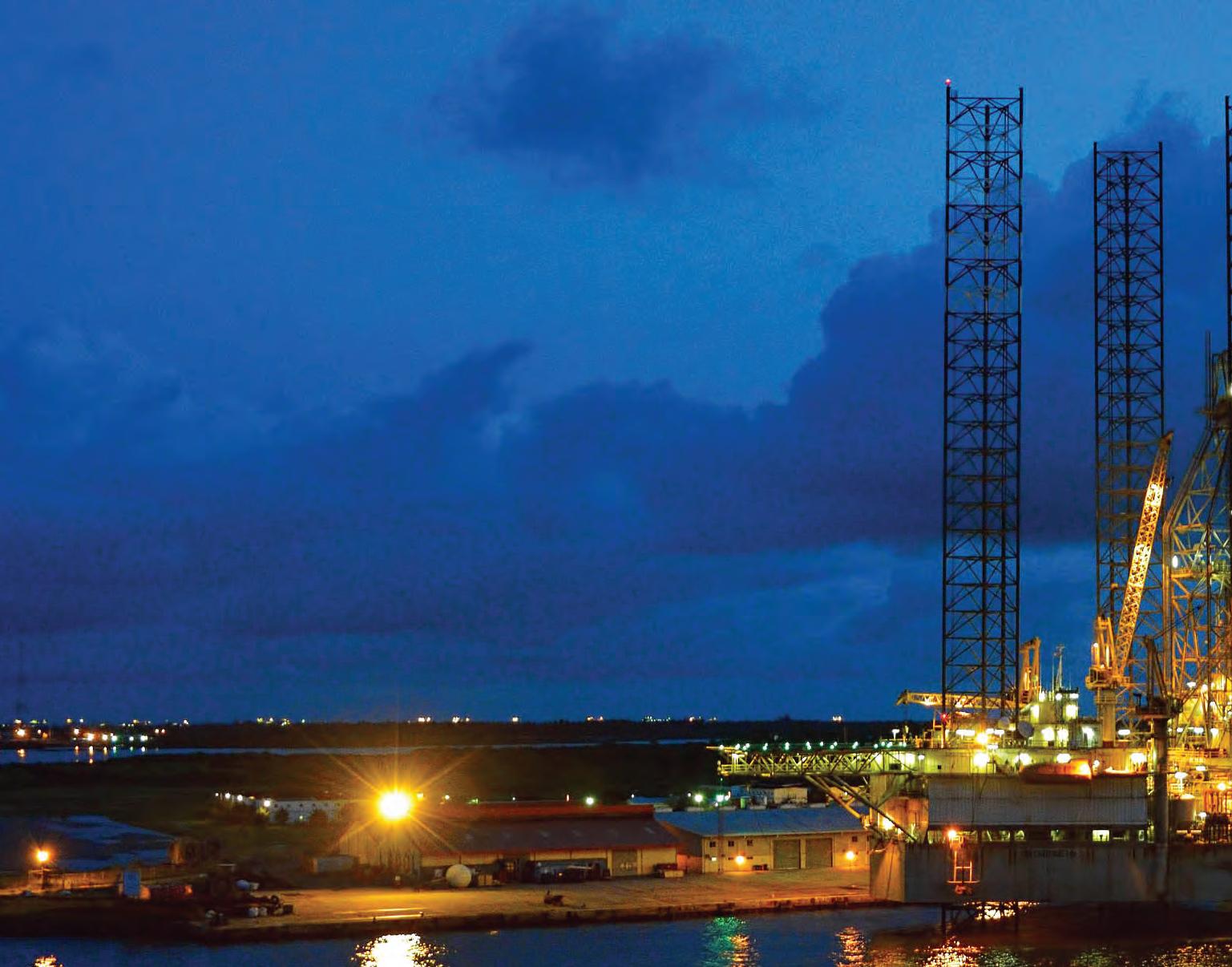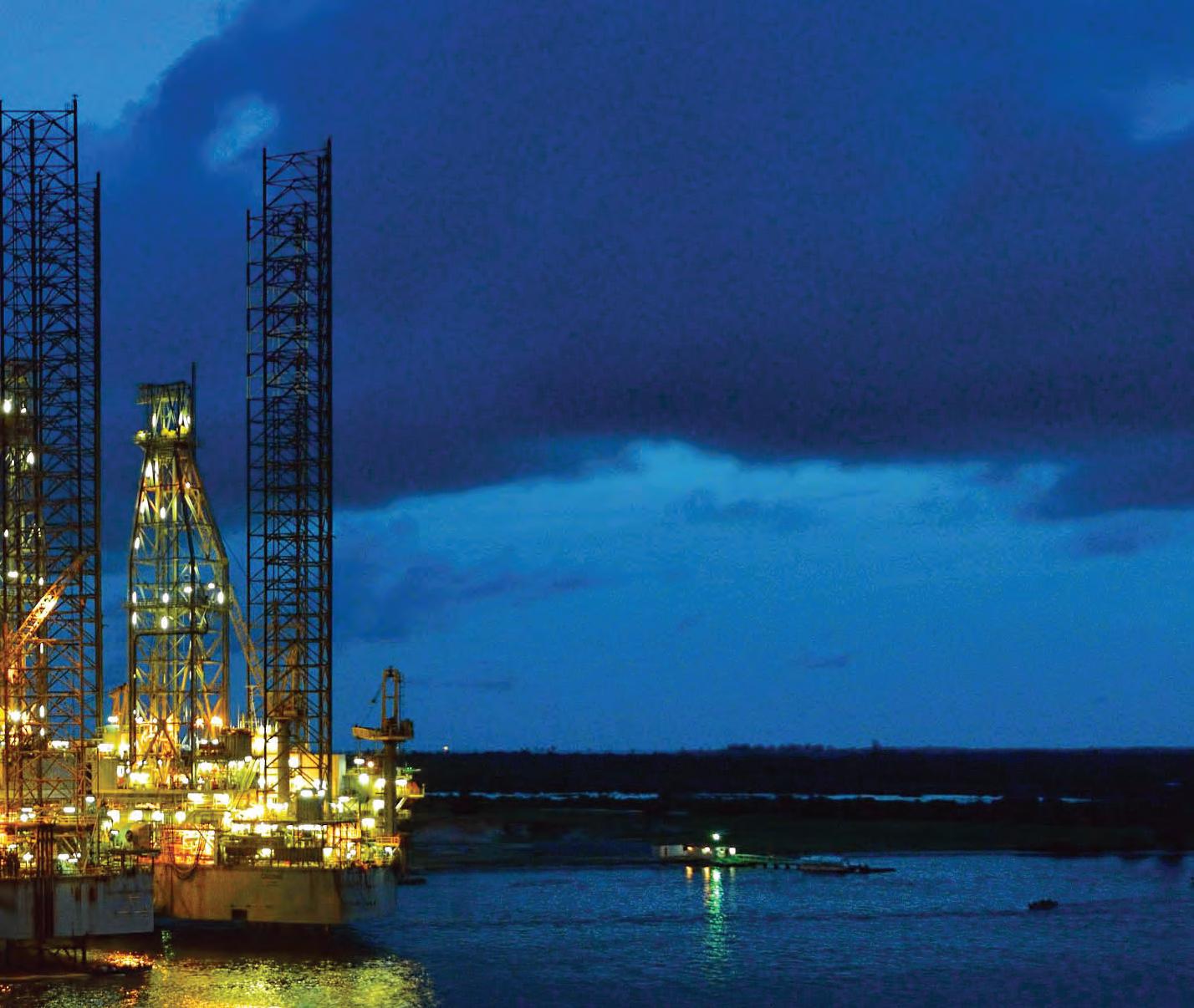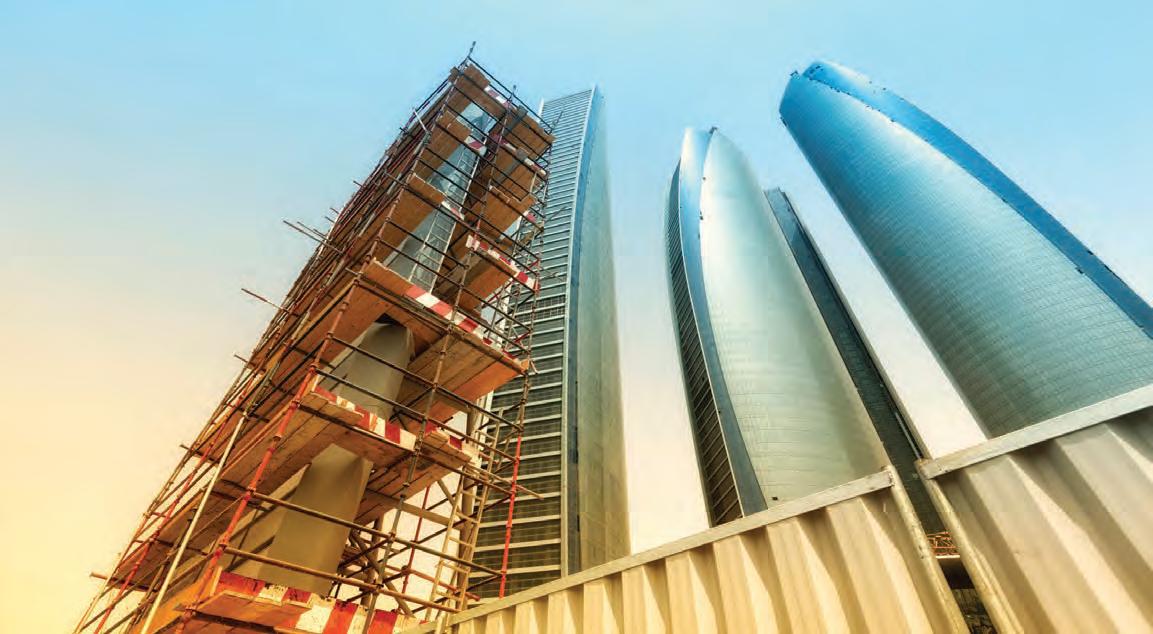
13 minute read
Nigeria in the Pipeline to Pay US$9bn Damages as Aborted Processing Plant Runs Out of Gas
On 16 August 2019, the High Court handed down its judgment
in the case of P&I Developments v Nigeria 1 enforcing a US$6.6bn
Advertisement
arbitral award (US$9bn with interest) against the Federal
Republic of Nigeria (“the FRN”) over a failed gas project.
Both the size of the judgment and the fact that it was awarded
for a project that never began construction have attracted a
considerable degree of controversy, with Nigerian officials
calling the decision of the High Court “completely wrong and
obviously unjustifiable.” 2 Nevertheless, the judgment confirms
the English court’s robust approach to the enforcement of arbitration awards and Butcher J’s pro-arbitration comments will be seen by the international arbitration community as further proof of London’s commitment to its reputation as the leading seat for arbitration.
By David Thomas QC and Brenna Conroy
Background
The dispute between the FRN and P&I Developments Limited (“P&ID”), a British Virgin Islands entity, arose out of a Gas Supply and Processing Agreement (“the GSPA”) entered into between the parties on 11 January 2010. Under the GSPA, the FRN agreed to supply natural gas (“Wet Gas”), at no cost to P&ID, and P&ID agreed to construct and operate the facility necessary to process the Wet Gas by removing the natural gas liquids (“NGLs”) contained within it. Pursuant to the terms of the GSPA, the lean gas was to be returned at no cost to the FRN, for use in power generation or other purposes, and P&ID was entitled to the NGLs stripped from the Wet Gas. The agreement was to run for 20 years, and P&ID expected this arrangement to generate US$5-6 billion in profits over that period. provided herein, shall apply to any dispute between such Parties under this Agreement….
The venue of the arbitration shall be London, England or otherwise as agreed by the P arties. The arbitration proceedings and record shall be in the English language.”
By 2012, a dispute had arisen in relation to the GSPA with P&ID contending that the FRN had failed to build the necessary pipelines to supply the Wet Gas to the production facility, which amounted to a repudiatory breach of the GSPA that was accepted by P&ID. P&ID thereafter commenced an arbitration against the FRN for damages in the sum of US$5,960,226,233 plus interest.
Arbitral Tribunal
The GSPA contained an arbitration clause that allowed either party to serve a notice of arbitration where a dispute arose. Clause 20 stated:
“The Agreement shall be governed by, and construed in accordance with the laws of the Federal Republic of Nigeria.
The Parties agree that if any difference or dispute arises between them concerning the interpretation or performance of this Agreement and if they fail to settle such difference or dispute amicably, then a Party may serve on the other a notice of arbitration under the rules of the Nigerian Arbitration and Conciliation Act (Cap A18 LFN 2004) which, except as otherwise The arbitral tribunal (chaired by Lord Hoffmann) ruled that: (1) FRN had repudiated the GSPA by failing to perform its obligations thereunder; (2) P&ID was entitled to damages; and (3) (by majority) those damages were assessed as being US$6.6bn, representing the loss of profits over the 20 year period minus a discount to account for the immediate payment of sums that would otherwise have accrued over the entire operational period, plus interest calculated at 7% per annum. By the time of the High Court judgment, this sum amounted to approximately US$9 billion. The tribunal’s decision was reached on the basis that there was no evidence, contrary to arguments made by the FRN, that the P&ID was unable or did not intend to fulfil its obligations under the agreement. The tribunal also determined that, contrary to the FRN’s assertion, there was no actual evidence that militancy in the Niger Delta had any impact on gas production or transport around the site earmarked by P&ID. As there was no meaningful challenge from the FRN, the tribunal agreed with P&ID on the measure and calculation of damages, including the 20-year period of lost profits. The interest rate set reflected what P&ID would have had to pay to borrow the money or could have earned by investing in Nigeria.
Following the issue of the tribunal’s award on liability, but before the Final Award was published establishing the quantum of P&ID’s claims, FRN commenced proceedings in the English Commercial Court to set aside the liability award on the ground of serious irregularity. After its application was rejected on paper, FRN initiated similar proceedings in the Federal High Court of Nigeria disputing, for the first time in the arbitration, that London was the seat chosen under the GSPA. FRN’s primary argument was that the word “venue” in the arbitration clause represented a choice of geographical location for the arbitration hearings, rather than a choice of juridical seat, which it submitted was Nigeria. FRN obtained an injunction in the same proceedings restraining the parties from taking any further step in the arbitration.
Despite the injunction issued by the Nigerian courts, the tribunal considered itself empowered to make a ruling on the seat of the arbitration and, under Procedural Order No. 12, determined
that the seat was England. FRN chose to continue participating in the arbitration whilst “maintaining its position on the award on liability” and the Final Award was issued by the tribunal on 31 January 2017.
High Court
P&ID applied to the High Court to enforce the Final Award pursuant to section 66 of the Arbitration Act 1996 (“the 1996 Act”). FRN opposed enforcement, arguing that the tribunal had not been entitled to rule in Procedural Order No. 12 on the seat of the arbitration, that FRN had not been given the opportunity to present its case before the tribunal’s ruling on the seat, and in any case that the arbitration was seated in Nigeria on the basis that the issue of the seat was to be determined in accordance with the law governing the arbitration clause of the GSPA (i.e. Nigerian Law, and that as a matter of Nigerian law the seat of the arbitration was Nigeria). It further argued that even if the arbitration was seated in London, and not Nigeria, the award was manifestly excessive, punitive and against English public policy. Butcher J first considered P&ID’s primary argument that the tribunal had been entitled to determine the seat of the arbitration and FRN was now bound by that determination. Despite FRN’s complaints of procedural unfairness, Butcher J considered that the seat of the arbitration was not a matter that FRN could now ask the court to revisit on the basis that FRN had failed to pursue any of the remedies available to it either before the tribunal, before the English courts or before the Nigerian courts, noting that FRN had allowed its action challenging Procedural Order No. 12 in the Nigerian courts to be struck out. This determination was bolstered by a finding that Procedural Order No. 12 had created an issue estoppel as to the seat of the arbitration in line with Good Challenger Navegante S.A. v Metalexportimport S.A. (The 'Good Challenger') 3 that precluded any such argument being raised on the application before the High Court.
Although not strictly necessary given his determination that FRN was bound by Procedural Order No. 12, Butcher J also determined whether the decision of the tribunal as to the seat of the arbitration had been correct. It was undisputed between the parties that Nigerian principles of construction should be taken to be the

same as those of English law. Applying the approach to construction of English law, at paragraph 85 of the judgment Butcher J concluded that “while there are significant arguments the other way, the GSPA provides for the seat of the arbitration to be in England” for the following principal reasons:

1. It was significant that Clause 20 referred to the venue “of the arbitration” as being London, which would continue up to and including the Final Award. This provision “represented an anchoring of the entire arbitration to London rather than providing that the hearings should take place there.”
2. Clause 20 provided that the venue of the arbitration “shall be ” London “or otherwise as agreed between the parties.” If the reference to venue was simply to where the hearings should take place, this was an inconvenient provision and one which the parties were unlikely to have intended. It would have meant that hearings had to take place in London, however inconvenient that might be for a particular hearing, unless the parties agreed otherwise. The question of where hearings should be conveniently held is, however, one which arbitrators ordinarily have the power to decide (as envisaged in section 16(2) of the Nigerian Arbitration Act (“ACA”)).
3. The reference in Clause 20 to the provision of the rules of the ACA w as not inconsistent with the choice of England as the seat of the arbitration; the nonmandatory provisions of the 1996 Act were replaced by that provision, but the mandatory provisions applied.
4. The authority of Zenith Global Merchant Ltd v Zhongfu International Investment FZE [2017] All FWLR 1837 was decided long after the conclusion of the GSPA and therefore could not be used to support any argument that at the time of conclusion of the agreement, the word “venue” was being used in the sense in which it was used in that case.
The FRN also argued that even if the seat of arbitration was England and the Final Award was a “domestic” award, the High Court should refuse leave to enforce it on the basis that it would offend public policy to enforce an award for damages which were “not compensatory, but hugely inflated and penal in nature.” To support its contention that the damages were not compensatory, the FRN relied on three particular points, namely: (1) that the tribunal had applied an incorrect and unduly low discount rate to the assessment of future cash flows from the project; (2) that the tribunal had ignored the fact that the GSPA required P&ID to grant the FRN a 10% carried interest in the project; and (3) the majority of the tribunal did not make any deduction on grounds of a failure to mitigate.
The High Court accepted that if enforcement of an award would be contrary to public policy, that would be a ground for refusal of enforcement under the 1996 Act as it would constitute a matter which fell to be considered by the Court in exercising its discretion. However, at paragraph 95 of the Judgment, Butcher J held that

“Looking at the Final Award itself, there can be no doubt that the Tribunal was intending to award only compensatory damages… In paragraph 20 it stated that: “the damage suffered by P&ID is the loss of net income it would have received if it had been supplied with wet gas in accordance with the contract and had been able to extract and sell the natural gas liquids.” The Tribunal went on to consider and reject an argument that P&ID would not have performed the contract, and to hold that losses of the kind referred to in paragraph 40 were not too remote… and were quantified at US$6,597,000,000…”
In response the public policy arguments Butcher J found, at paragraph 102, that:
“I am clearly of the view that there is no public policy which requires the refusal of enforcement to an arbitral award which states and is intended to award compensatory damages, and where, even if the damages awarded are higher than this Court would consider correct (as to which I express no view), that arises only as a result of an error of fact or law on the part of the arbitrators. The enforcement of such an award would not be "clearly injurious to the public good" or "wholly offensive to the ordinary reasonable and fully informed member of the public". Furthermore, the public policy in favour of enforcing arbitral awards is a strong one, and, if a balancing exercise is required at all, outweighs any public policy in refusing enforcement of an award of excessive compensation. The labelling of such excessive compensation as "punitive" or "penal", as the FRN seeks to do in this case does not alter this conclusion.”
Discussion

The initial High Court decision drew controversy due to the fact it upheld an arbitration award that was argued by the FRN to be “manifestly excessive.” The Final Award itself represents around 20% of the government’s foreign reserves, one third of its fiscal budget, and 2.5% of its GDP. Some have seen this decision as sending a very ‘pro-arbitration’ message, particularly given the court’s argument that public policy favours arbitration awards being enforced even where the award is large or the respondent is a state. Butcher J also concluded that the circumstances that justify arbitration awards being set aside on public policy grounds should be narrowly circumscribed.
Given that the seat is a key factor in any arbitration, the decision is also a reminder of how important it is to give the issue careful consideration at the outset and take care when drafting the arbitration agreement. In this particular case, a reference to a ‘venue’ was taken to mean the arbitral seat, rather than the physical location of the arbitration, which does not have the same significance.
What next?
Following the High Court decision enforcing the award, Nigeria was granted a stay of execution pending its appeal against the decision which was conditional on Nigeria paying US$200 million into court. 4
P&ID had offered an undertaking that any monies obtained by way of execution would be held in a client account of its solicitors pending the outcome of the appeal. But the FRN argued there was a real risk that the assets would be not returned if the appeal was successful on the basis that P&ID was a BVI company and: (i) it had no operations there; (ii) there was no information regarding its assets or balance sheet; the instant claim might be its only asset; and further, it had an opaque ownership structure.
The application for stay was granted as there was held to be a real risk that the assets obtained by P&ID pending an appeal would be irrecoverable by the FRN in the event of a successful appeal and even with the undertaking, there were reasons to consider that there might be immediate and potentially severe damage to the FRN without a stay. Granting the stay was therefore considered to be the best solution, and one which accorded with the interests of justice for both parties.
Keating Chambers 15 Essex Street London WC2R 3AA DX: LDE 1045
Tel: +44 (0)20 7544 2600 Fax: +44 (0)20 7544 2700 Email: clerks@keatingchambers.com Web: keatingchambers.com Follow us: @keatingchambers Providing dispute resolution services to the construction, engineering, shipbuilding, energy, procurement and technology sectors worldwide.
This publication is intended as a general overview and discussion of the subjects dealt with. It is not intended to be, and should not be used as, a substitute for taking legal advice in any specific situation. Keating Chambers and the barristers who practise from Keating Chambers will accept no responsibility for any actions taken or not taken on the basis of this publication. If you would like specific advice, please contact Keating Chambers on +44 (0)20 7544 2600. Content copyright © Keating Chambers, 2020. All rights reserved.






